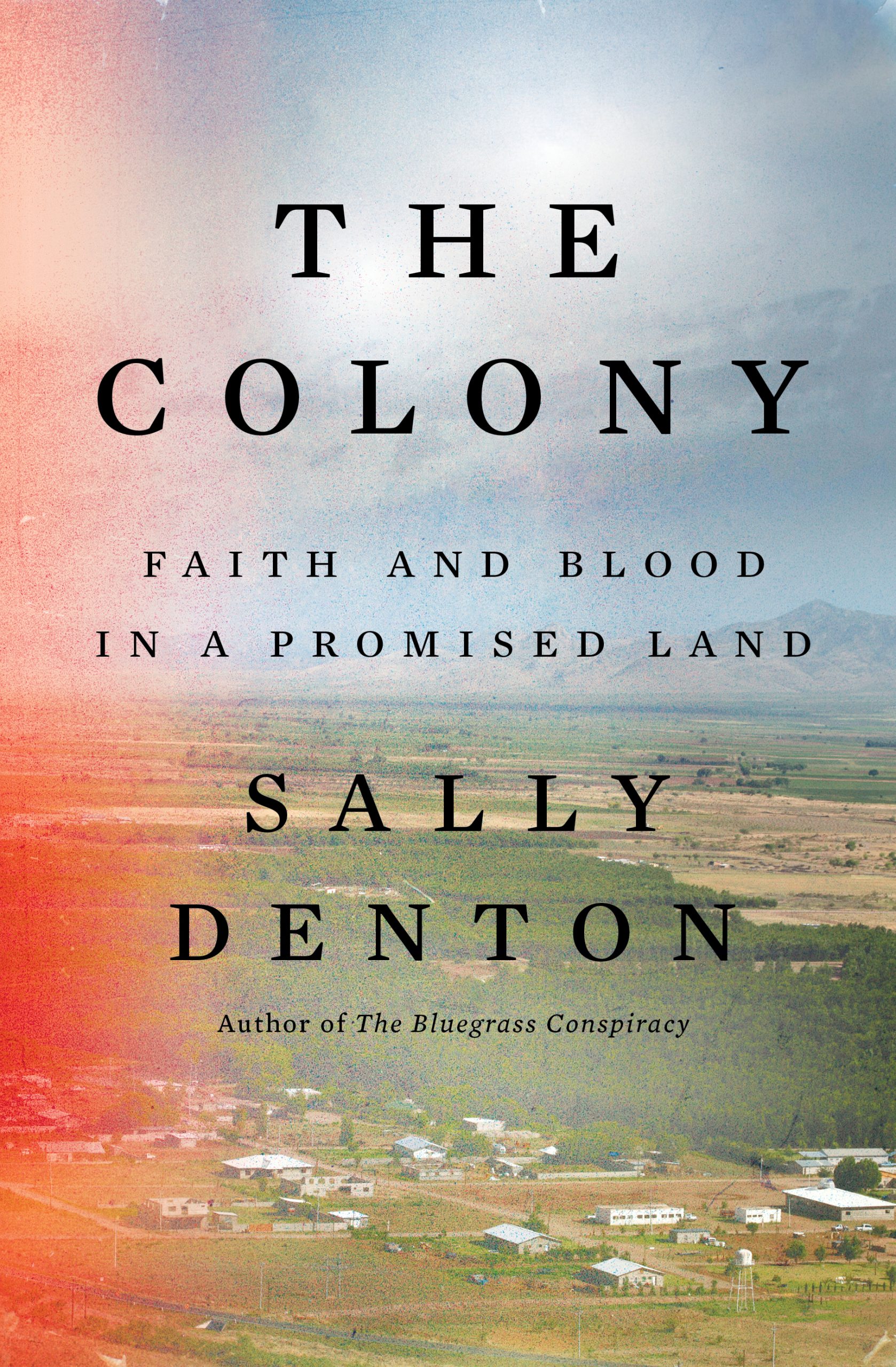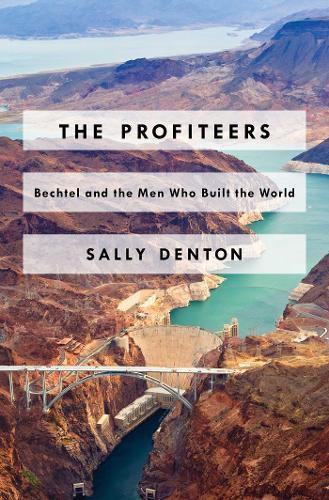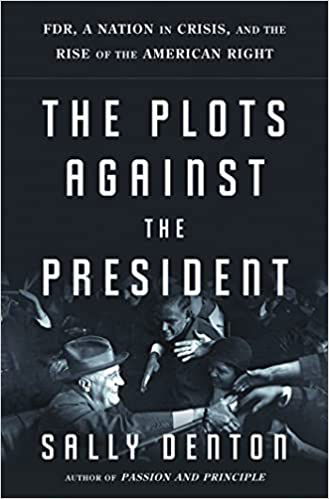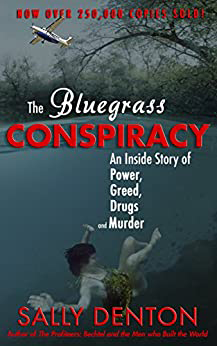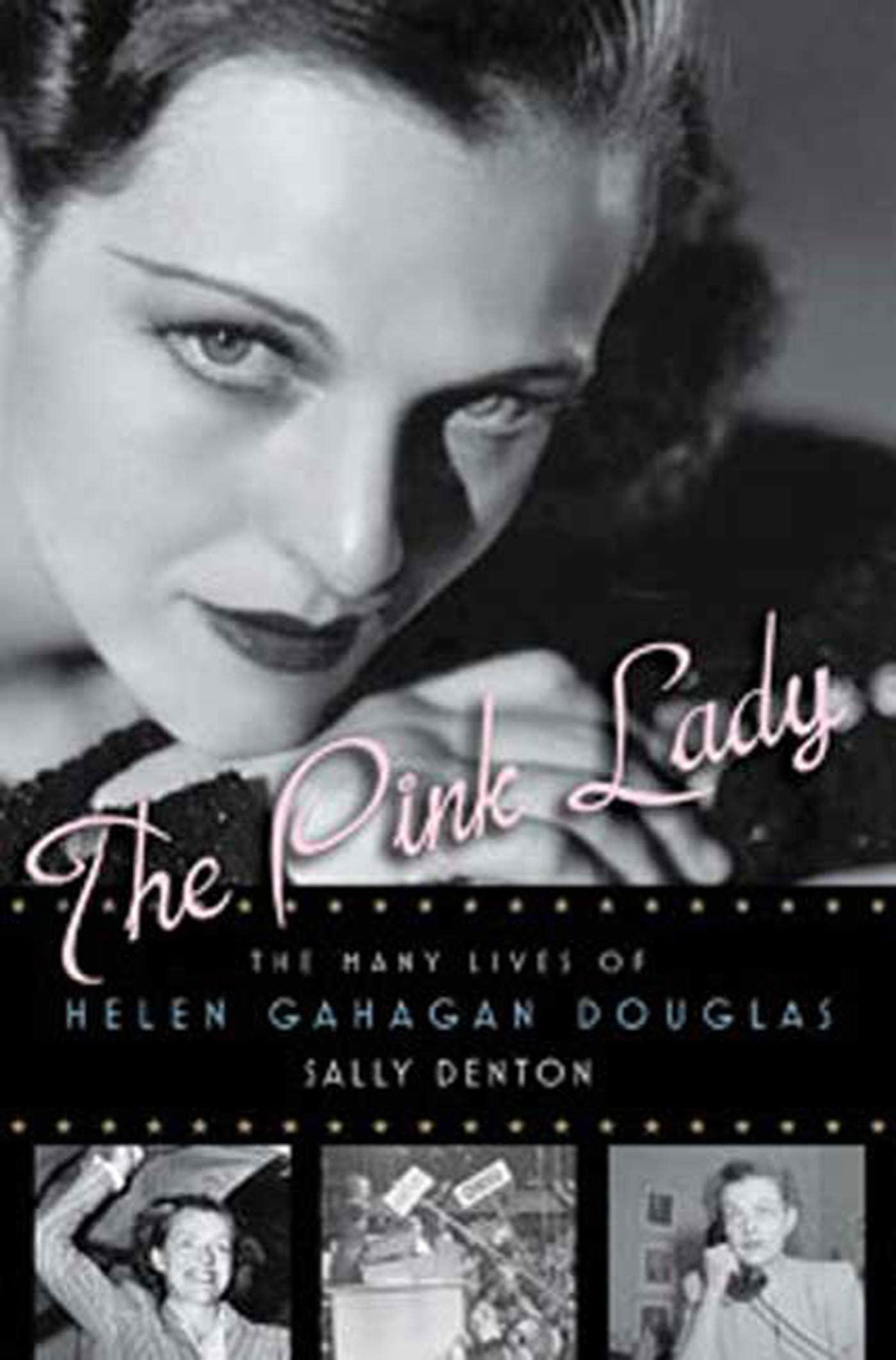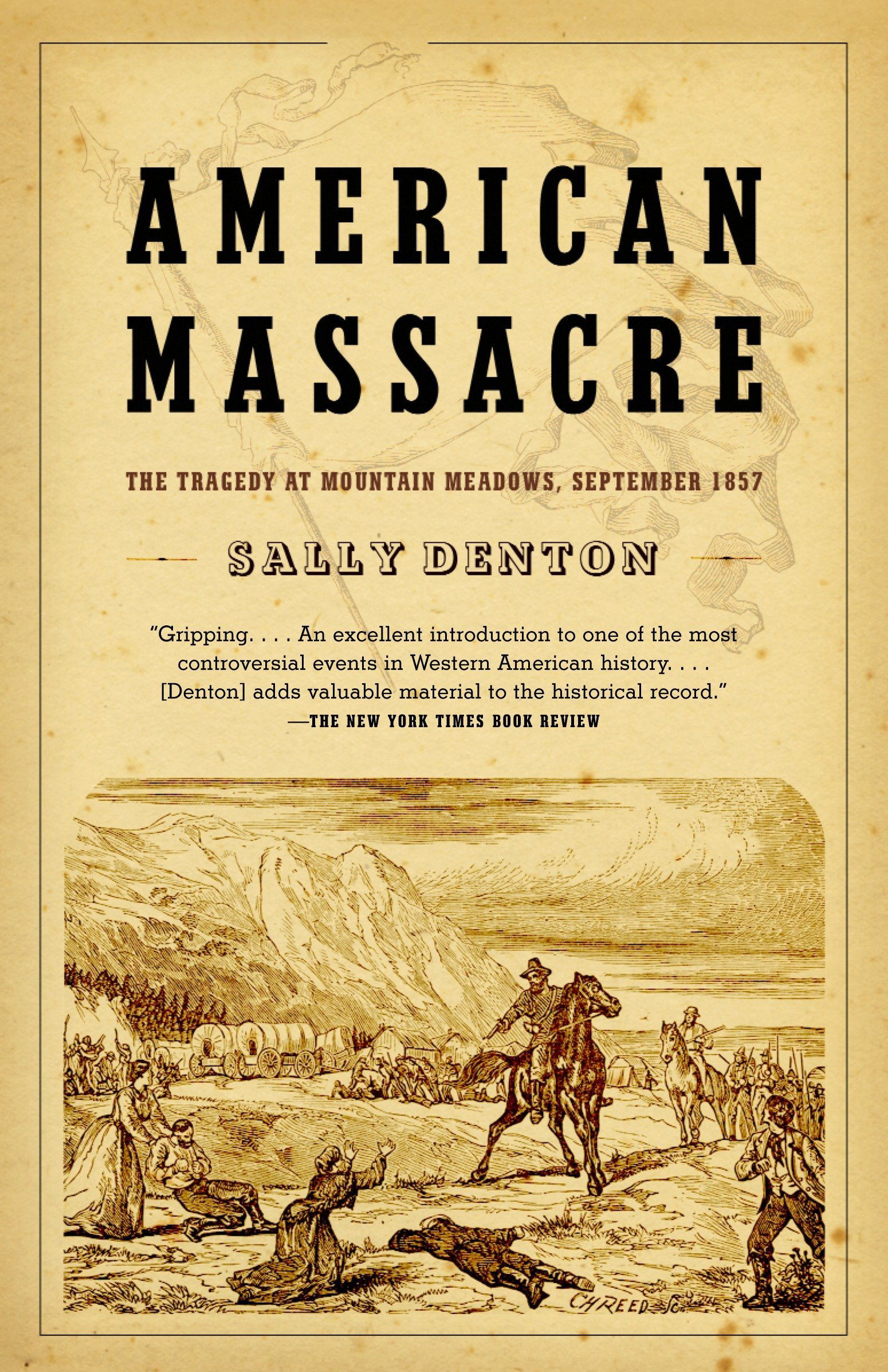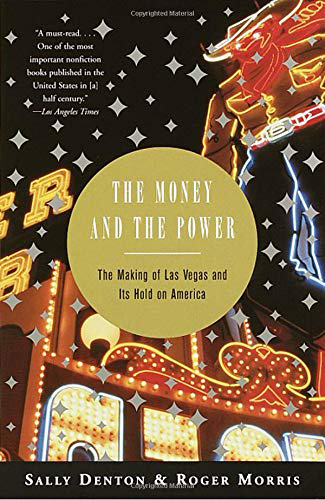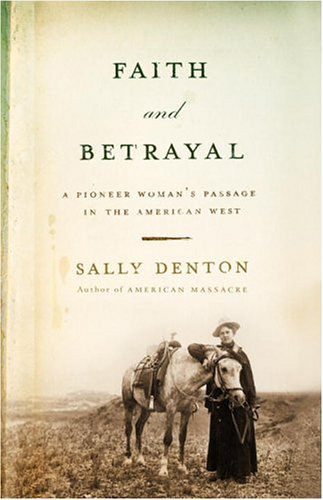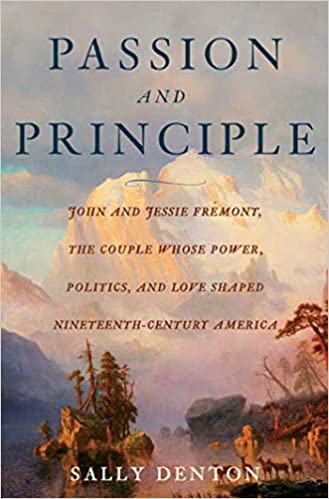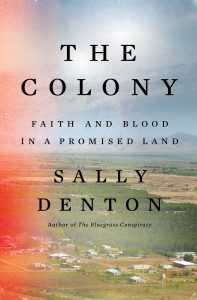The Colony
An investigation into the November, 2019 killings of nine women and children in Northern Mexico―an event that drew international attention―The Colony examines the strange, little-understood world of a polygamist Mormon outpost.
On the morning of November 4, 2019, an unassuming caravan of women and children was ambushed by masked gunmen on a desolate stretch of road in northern Mexico controlled by the Sinaloa drug cartel. Firing semi-automatic weapons, the attackers killed nine people and gravely injured five more. The victims were members of the LeBaron and La Mora communities―fundamentalist Mormons whose forebears broke from the LDS Church and settled in Mexico when their religion outlawed polygamy in the late nineteenth century. The massacre produced international headlines for weeks, and prompted President Donald Trump to threaten to send in the US Army.
In The Colony, bestselling investigative journalist Sally Denton picks up where the initial, incomplete reporting on the attacks ended, and delves into the complex story of the LeBaron clan. Their homestead―Colonia LeBaron―is a portal into the past, a place that offers a glimpse of life within a polygamous community on an arid and dangerous frontier in the mid-1800s, though with smartphones and machine guns. Rooting her narrative in written sources as well as interviews with anonymous women from LeBaron itself, Denton unfolds an epic, disturbing tale that spans the first polygamist emigrations to Mexico through the LeBarons’ internal blood feud in the 1970s―started by Ervil LeBaron, known as the “Mormon Manson”―and up to the family’s recent alliance with the NXIVM sex cult, whose now-imprisoned leader, Keith Raniere, may have based his practices on the society he witnessed in Colonia LeBaron.
The LeBarons’ tense but peaceful interactions with Sinaloa deteriorated in the years leading up to the ambush. LeBaron patriarchs believed they were deliberately targeted by the cartel. Others suspected that local farmers had carried out the attacks in response to the LeBarons’ seizure of water rights for their massive pecan orchards. As Denton approaches answers to who committed the murders, and why, The Colony transforms into something more than a crime story. A descendant of polygamist Mormons herself, Denton explores what drove so many women over generations to join or remain in a community based on male supremacy and female servitude. Then and now, these women of Zion found themselves in an isolated desert, navigating the often-mysterious complications of plural marriage―and supported, Denton shows, only by one another.
A mesmerizing feat of investigative journalism, The Colony doubles as an unforgettable account of sisterhood that can flourish in polygamist communities, against the odds.
The Profiteers: Bechtel and the Men Who Built the World
From the bestselling coauthor of The Money and the Power (which the Los Angeles Times called “one of the most important nonfiction books published in a half century”)—the inside story of the Bechtel family and the empire they’ve controlled since the construction of the Hoover Dam.
The tale of the Bechtel family dynasty is a classic American business story. It begins with Warren A. “Dad” Bechtel, who led a consortium that constructed the Hoover Dam. From that auspicious start, the family and its eponymous company would go on to “build the world,” from the construction of airports in Hong Kong and Doha, to pipelines and tunnels in Alaska and Europe, to mining and energy operations around the globe.
Today Bechtel is one of the largest privately held corporations in the world, enriched and empowered by a long history of government contracts and the privatization of public works, made possible by an unprecedented revolving door between its San Francisco headquarters and Washington. Bechtel executives John McCone, Caspar Weinberger, and George P. Shultz segued from leadership at the company to positions as Director of the CIA, Secretary of Defense, and Secretary of State, respectively.
Like all stories of empire building, the rise of Bechtel presents a complex and riveting narrative. In The Profiteers, Sally Denton, whom The New York Times called “a wonderful writer,” exposes Bechtel’s secret world and one of the biggest business and political stories of our time.
The Plots Against the President: FDR, A Nation in Crisis, and the Rise of the American Right
In March 1933, Franklin Delano Roosevelt finally became the nation's thirty-second president. The man swept in by a landslide four months earlier now took charge of a country in the grip of panic brought on by economic catastrophe. Though no one yet knew it-not even Roosevelt-it was a radical moment in America. And with all of its unmistakable resonance with events of today, it is a cautionary tale.
The Plots Against the President follows Roosevelt as he struggled to right the teetering nation, armed with little more than indomitable optimism and the courage to try anything. His bold New Deal experiments provoked a backlash from both extremes of the political spectrum. Wall Street bankers threatened by FDR's policies made common cause with populist demagogues like Huey Long and Charles Coughlin. But just how far FDR's enemies were willing to go to thwart him has never been fully explored.
Two startling events that have been largely ignored by historians frame Sally Denton's swift, tense narrative of a year of fear: anarchist Giuseppe Zangara's assassination attempt on Roosevelt, and a plutocrats' plot to overthrow the government that would come to be known as the Wall Street Putsch. The Plots Against the President throws light on the darkest chapter of the Depression and the moments when the fate of the American republic hung in the balance.
The Bluegrass Conspiracy: An Inside Story of Power, Greed, Drugs and Murder
When Kentucky Blueblood Drew Thornton parachuted to his death in September 1985 carrying thousands of dollars in cash and 150 pounds of cocaine, the gruesome end of his startling life blew open a scandal that reached to the most secret circles of the U.S. government. This story of Thornton and The Company he served, and the lone heroic fight of State Policeman Ralph Ross against an international web of corruption is one of the most portentous tales of the 20th century.
The Pink Lady: The Many Lives of Helen Gahagan Douglas
A long-overdue political biography of Helen Gahagan Douglas―Broadway star, Congresswoman, Nixon nemesis, and forgotten heroine of A merican liberalism.
If Hillary Clinton struggled to crack the glass ceiling in 2008, imagine the challenges that faced Helen Gahagan Douglas. She was a three-term Congresswoman beginning in 1944, and ran for the U .S. Senate against Richard Nixon just three decades after women gained the right to vote. Douglas was also a Broadway star, opera prima donna, friend of FDR, lover of LBJ, and passionate New Dealer. Acclaimed author Sally Denton brings every dimension of this extraordinary woman to life in The Pink Lady, a compelling account of Douglas's incomparable life as stage star, politician, and public intellectual.
A brutal 1950 Senate campaign waged by Republican Congressman Richard Nixon ended Douglas' career as an elected official―Nixon and his henchmen tagged Douglas "The Pink Lady" and, with the help of the FBI's J. Edgar Hoover, made her victim to the same McCarthyist anti-Red hysteria that was sweeping Hollywood. Nixon's savage campaign was the prototype of right-wing smear tactics, a model studied by Lee Atwater and Karl Rove.
Over four decades in politics, Douglas was a torchbearer for progressive ideals, supporting legislation for affordable housing, public education, and social security extension; in foreign policy she fought for nuclear disarmament and the creation of Israel. Denton's rich narrative restores Douglas to her rightful place as a pioneer of American politics.
American Massacre: The Tragedy at Mountain Meadows, September 1857
In September 1857, a wagon train passing through Utah laden with gold was attacked. Approximately 140 people were slaughtered; only 17 children under the age of eight were spared. This incident in an open field called Mountain Meadows has ever since been the focus of passionate debate: Is it possible that official Mormon dignitaries were responsible for the massacre? In her riveting book, Sally Denton makes a fiercely convincing argument that they were.
The author–herself of Mormon descent–first traces the extraordinary emergence of the Mormons and the little-known nineteenth-century intrigues and tensions between their leaders and the U.S. government, fueled by the Mormons’ zealotry and exclusionary practices. We see how by 1857 they were unique as a religious group in ruling an entire American territory, Utah, and commanding their own exclusive government and army.
Denton makes clear that in the immediate aftermath of the massacre, the church began placing the blame on a discredited Mormon, John D. Lee, and on various Native Americans. She cites contemporaneous records and newly discovered documents to support her argument that, in fact, the Mormon leader, Brigham Young, bore significant responsibility–that Young, impelled by the church’s financial crises, facing increasingly intense scrutiny and condemnation by the federal government, incited the crime by both word and deed.
Finally, Denton explains how the rapidly expanding and enormously rich Mormon church of today still struggles to absolve itself of responsibility for what may well be an act of religious fanaticism unparalleled in the annals of American history. American Massacre is totally absorbing in its narrative as it brings to life a tragic moment in our history.
The Money and the Power: The Making of Las Vegas and Its Hold on America
Las Vegas—the name evokes images of divorce and dice, gangsters and glitz. But beneath it all is a sordid history that is much more insidious and far-reaching than ever imagined. The Money and the Power is the most comprehensive look yet at Las Vegas and its breadth of influence. Based on five years of intensive research and interviewing, Sally Denton and Roger Morris reveal the city’s historic network of links to Wall Street, international drug traffickers, and the CIA. In doing so, they expose the disturbing connections amongst politicians, businessmen, and the criminals that harness these illegal activities. Through this lucid and gripping indictment of Las Vegas, Morris and Denton uncover a national ethic of exploitation, violence, and greed, and provide a provocative reinterpretation of twentieth-century American history. Now this neon maelstrom of ruthlessness and greed stands to not as an aberrant “sin city,” but as a natural outgrowth of the corruption and worship of money that have come to permeate American life.
Faith and Betrayal: A Pioneer Woman's Passage in the American West
The richly told story of a nineteenth-century woman–the author’s great-great-grandmother–whose religious faith was betrayed and regained on a journey across the American West.
In the 1850s, Jean Rio was a recently widowed English mother of seven. Rich, well educated, musically gifted, deeply spiritual, and increasingly dismayed by the social injustices she saw around her, she was moved by the promises of Mormon missionaries and set out from England for Utah. On her fifty-six-day Atlantic crossing, she began keeping a diary, and this extraordinary chronicle is the basis of Sally Denton’s book.
We follow Jean Rio from New Orleans, where she disembarks, up the Mississippi by riverboat, and, finally, westward by wagon train. We see her family transformed by necessity–mastering frontier skills, surviving storms, finding their own food, overcoming illness and injury–during the five months it takes them to reach Zion.
We see her initial enthusiasm turn to disillusionment: She is forced to surrender her money to the church. She realizes she has been lied to about polygamy–Mormons do practice it–which she detests. Acts of Mormon violence against nonbelievers repel her. Her musical skills are buried beneath the daily rigors of farming. Two of her sons flee to California. We witness her seventeen-year struggle to make peace with her situation before she, too, escapes to California–to freedom, a career as a midwife, and a new religion that fulfills her.
Dramatic and powerful, Faith and Betrayal is the moving account of one woman’s gamble in an emerging America, and a valuable addition to the history of both the Mormon experience and the long saga of immigrant pioneer women.
Passion and Principle: John and Jessie Fremont, the Couple Whose Power, Politics, and Love Shaped Nineteenth-Century America
She was the daughter of powerful Missouri politician Thomas Hart Benton and was a savvy political operator who played confidante and advisor to the inner circle of the highest political powers in the country. He was a key figure in western exploration and California's first senator, and became the first presidential candidate for the Republican Party―and the first candidate to challenge slavery. Both shaped their times and were far ahead of it, but most extraordinarily their story has never fully been told. Thanks in part to a deep-seated family quarrel between Jessie's father and the couple, John and Jessie were eclipsed and opposed by some of the most mythic characters of their era, not least Abraham Lincoln. Award-winning historian Sally Denton restores the reputations of John and Jessie and places them where they belong―at the center of our country's history.
The Colony
Faith and Blood in a Promised Land
"THE COLONY is one of the most gripping and disturbing true stories I've ever come across...This is far more than the usual true crime book; it is a deep historical exploration of evil. I could not put THE COLONY down."
Douglas Preston, author of The Lost City of the Monkey God
Publicity Inquiries
Johanna Ramos-Boyer, JRB Communications, LLC | johanna@jrbpr.biz
2000 Avenue of the Stars, Los Angeles, CA 90067 | 424- 288-2000 | msnyder@caa.com
2000 Avenue of the Stars, Los Angeles, CA 90067 | 424-288-2640 | katie.zwick@caa.com
